|
Holy Week is one of my favorite weeks of the year; each of the days builds with anticipation and I get excited just by the thought of Easter Sunday. Lent is almost through and it’s almost time to be joyful in the Risen Lord. When I was little, I felt this anticipation and excitement too. I would spend Holy Week letting people know that Easter was only a couple short days away—it felt like spring would officially be here as soon as we woke up on Easter Sunday! “The very best holiday of the year” was coming, and I had to get ready for it! Did I fully understand it was Christ that I was waiting for or did I just want to wear my new white shoes for church? Looking back, although it could have been the new Easter shoes, I think my 10 year-old-self would have agreed that I really was waiting for Holy Week as the final stretch to the finish line on a journey that began on Ash Wednesday.
In today’s Gospel reading, we read about moments of betrayal and loyalty. Judas leaves the Last Supper to betray Jesus while Peter in his humanity says that he will never deny him. I find it to be one of the most powerful Gospels of Holy Week. Here’s why: Like Peter, we are called to be disciples whose repentance leads to an experience of God’s forgiveness. Jesus knows that his friends will betray him and that he has limited time left on Earth. On one hand, Judas tries not to be obvious about his deception as he leaves the table, and on the other hand, Peter publicly tells Christ that he will stand by him and never fail him. Ultimately, both men betray Jesus, but it’s Peter who seeks forgiveness and allows himself a second chance. Judas, on the other hand, is overcome with guilt and despairs that his sin is beyond the reach of God’s mercy-- eventually taking his own life. We are like Peter in so many ways! We say we love Christ and that we could never deny him, but at the first sign of pressure we sin and turn our backs on him. How often have we chosen to do something that pulls our hearts from Jesus? It is during Lent—especially during Holy Week—that we recall the pain we’ve caused Christ. This week and each day, Jesus gives us another chance to say to him, “Forgive me; I have sinned.” When Christ meets his disciples after his Resurrection, he asks Peter, “Do you love me?” Let us respond with Peter this Easter, “Yes Lord, you know that I love you!” As Easter approaches, we remember how much we are loved by Christ in his Passion, death on the Cross, and soon to be Resurrection. In these next few days, I challenge you not to say, “Lord I could never deny you!” but instead, “Forgive me Lord, for I have sinned.” Last year on Good Friday, Pope Francis said, “Lord Jesus, always grant us the grace of holy repentance...the spark of hope is lit in the darkness of our despair, because we know that your only measure for loving us is to love us without measure.” This Holy Week, in this time for “holy repentance,” let us make sure to spend these last days in Lent with our hearts preparing for Easter. May we use these remaining days in the desert as a time for forgiveness and allow our hearts to be loved by Christ. May all of our hearts gleam with anticipation for Holy Week and better knowledge of the Risen Lord!
0 Comments
There’s something to be said for silence. In the absence of vocalizations or other sounds, one can focus more intently in his or her surroundings. At first, it may seem uncomfortable, especially if one is usually talkative and used to a noisy environment. At the same time, one might have difficulty focusing his or her thoughts in silence, suddenly having to contend with an onslaught of mental distractions. Especially in today’s society, one is constantly bombarded with external messages, symbols, and other stimuli in a magnitude never encountered previously. In one way or another, we have become numb. We now find ourselves nearly halfway through Advent, a period of reflection, meditation, and waiting in anticipation of the solemn celebration of the nativity of our Lord. While the rest of the culture may be focused on shopping for gifts and decorating for the holidays, the faithful are called to contemplate the gift of Love made incarnate in a most humble setting over two thousand years ago. Throughout the liturgical year, but especially during this time of Advent, I find that removing myself from the demands of the world and replacing them with the stillness of Bethlehem is not only refreshing, but also an effective catalyst for drawing more deeply into the mystery of the Incarnation: “the Word became flesh and dwelt among us.” (John 1:14) How can silence help us dwell in this mystery? For one, sacred Scripture contains numerous accounts of how effective silence is for drawing one nearer to God and neighbor. Actually, one of my favorite biblical passages illustrates the friends of the greatly afflicted Job sharing in his miseries through their silent presence: “They sat with him on the ground seven days and seven nights, and no one spoke a word to him, for they saw that his suffering was very great” (Job 2:11-13). God is not just with us, however, in moments of suffering or, on the opposite side of the spectrum, moments of majestic power and glory. God’s love continuously invites us to draw near to Him in our daily lives as well. Remember that the prophet Elijah experienced God in the sound of a gentle breeze blowing, not in the preceding bursts of wind, earthquake, or fire (1 Kings 19:11-13). While silence can be beneficial to one’s spiritual life, it itself is not the end of contemplation or meditation. Rather, the focus remains, as it is for all prayer, communication with God. Silence, then, is a medium for encountering God, just as music or the spoken word is employed in liturgy. There are times when words are insufficient or music fails to strike the right chords. In these cases, a silent presence can be the most appropriate expression of closeness, such as in hospice, a cemetery, nursery, hospital, or any other place where the ministry of presence is desired. Similarly, as I prepare myself for a Holy Hour of silent adoration before the Lord in the Blessed Sacrament, I remind myself of the importance of placing myself before God’s presence. Sometimes, a tender gaze of love can be a beautiful prayer in itself. As we continue to wait and reflect during the beginning of the new liturgical year for Christmas, let us pray to be able to free our minds from the things of this world that may distract us from seeking our “heavenly peace,” that is, union with God, the Word Incarnate, Emmanuel. For it was indeed a silent night, as the carol goes, during which our Savior came into this world and the shepherds and magi adored him. The wonder and awe of the miracle had passed over the scholars and authority figures and was instead “given to the childlike” to experience and behold for themselves (Matthew 11:25). In silence, our joy is not diminished, nor is our love any less potent, but through it we can continue to focus our attention and energy towards adoring the King of Kings and Lord of Lords: Jesus Christ, true God and true man. As we begin the new year of 2016, many of us design our road maps for the coming 12 months: lose weight, pray more, become more charitable, finish “xyz” project, etc. These personal goals are all about hopefulness with the anticipation of bettering ourselves. After putting together my own list of New Year’s resolutions, I thought to myself, “Isn’t this why I seek guidance from Jesus? To erase failings of the previous year and replace them with goodness?” The Feast of the Epiphany provides us with inspiration to tackle our resolutions by following the Lord’s individualized path for each of us. In Pope Francis’ Epiphany homily from 2014, he says, “[The magi] teach us not to be content with a life of mediocrity, of ‘playing it safe’, but to let ourselves be attracted always by what is good, true and beautiful…by God, who is all of this, and so much more! And they teach us not to be deceived by appearances, by what the world considers great, wise and powerful. We must not stop at that. It is necessary to guard the faith.” It’s so easy to fall into the trap of desiring what others around us may be or have, and we can mistakenly set resolutions imitating societal pressures. We are called to discern our unique purpose and skills for the betterment of society, not copy someone else’s. Perhaps my favorite portion of Pope Francis’ 2014 homily is his call to not be content with the current situation. We can always do more to improve ourselves or assist others inour immediate or global communities, whether that includes boosting our spiritual livesor revising our charitable giving plans or a call to do something else. God constantly challenges us to strive for greatness, never settling. The magi faithfully followed their journey toward Jesus, the manifestation of God. This total abandon of following the status quo so they could find Jesus is the same trust we are called to place with Him today. The magi did not fall into Herod’s trap of darkness after seeing the newborn baby Jesus. So, too, must we also guard the faith from darkness in the guise of light. The example provided by the magi encourages us to follow the greatest desires written on our hearts by God. Advent, the word in and of itself instills hope and builds anticipation for greatness, joy and peace. What is it are we waiting for? It seems with the close of the year, we wait anxiously for those intimate times with our family and friends, a break from work and the routine and a time for closeness. Maybe, we are waiting for a Christmas party, presents and the holiday ambience. As a student, I always find it paradoxical that finals would be during the season of Advent. The hectic study and preparation of exams easily muddles the preparation I could be doing in my own heart for the King. The anticipation, the excess and busyness I find myself in reminds me of the Gospel story where the disciples forget the presence of the Lord in their midst: “And behold, there arose a great storm on the sea, so that the boat was being swamped by the waves; but [Jesus] was asleep. And they went and woke him, saying, ‘Save us Lord; we are perishing.’ And he said to them, ‘Why are you afraid, O men of little faith?’ Then he rose and rebuked the winds and the sea; and there was a great calm” (Matthew 8:23-26). Looking without eyes of faith, the disciples found themselves in a panic and disarray. With a focus on the storm and on the circumstance that assailed them, the disciples forgot the most essential truth that was right there with them on the boat: the Sleeping Christ. The answer to their cries for help was peacefully present in their situation ready to grace them with a great calm. What is it, again, that we are waiting for during this Advent Season? The gift we are waiting for is the sleeping babe, the sleeping Christ, in the manger. The Divine Son, who humbles Himself so greatly that He arrives in the stillness of night, in the quiet with shepherds and sheep alike. The Creator God comes in the stillness. What we are waiting for is the Prince of Peace. My own hurriedness in finishing all of my papers and exams, finding the perfect gifts for my friends and family, making travel plans and somehow finding time to stop and recognize where I am headed resembles the experience of the disciples. I am awaiting His peace, but my actions reveal otherwise. I must intentionally make the effort to stop and breathe in what I am truly searching for this December. May the anticipation throughout this Advent season bring us to stop and ponder the mystery of the Lord of the Universe resting in a manger who has come to encounter our hearts. May the peace of the Sleeping Christ invade our hearts, our minds, and our actions so we too may accept the true gift He wishes for us all this season: a great calm (Matthew 8:26). “I will wait; I will wait for you.” Call it my theme song. It’s a chorus I’ve been repeating to God for months now. Whenever I get impatient or frustrated, I begin to pray with these words from the Mumford and Sons song. It’s less of a prayer that implies God is not working in my life and more of a concession to not knowing exactly how. It’s a surrendering of control, a transfer of the ego away from the self—and trying to be alright with the process. The past 10 months have been a time of both joyful anticipation and relinquishing control. I am engaged and will be getting married in about one month’s time. For the majority of our relationship, my fiancé and I have been praying about where to live, discerning everywhere from Denver to San Antonio to Washington, D.C. We’ve been doing all of this in the midst of something most find insane: long-distance. It’s a journey we felt called into rather than one either of us would have chosen. There are times when I’ve felt like the Israelites wandering the desert sands. I’ve looked up at God and shouted, “where are we going!?” I’ve picked up the flakes of hoar frost on the ground, this food from heaven, and said to Him, “what is it?”—the literal translation of the Hebrew word manna. I haven’t always liked the manna the Lord has given me, nor can I claim to have responded with the confidence and joy that Our Blessed Mother had in her “fiat” to God at the Annunciation when she said, “Let it be done to me according to thy word.” (Lk 1:38). Most of the time, I have to fight the temptation to join the hungry and tired Israelites’ grumbling. I have to fight to say words that don’t come naturally to me as a human being: “I will wait,” “thank you,” and “fiat.” Jesus and Mary teach me the appropriate human posture in response to God’s plan: surrender and thanksgiving in the midst of the unknown or in times of suffering. The most beautiful example of this occurs right before Christ’s Passion. At the Last Supper, knowing fully of his impending torture and death, Christ gave thanks, blessed bread and broke it (cf Mt. 26:27). Moments later, at the height of his spiritual and emotional passion in the Garden of Gethsemane, Christ uttered words akin to those of his mother about thirty-three years earlier, “not my will, but yours be done” (Lk. 22:42). Meditating upon Jesus and Mary’s examples throughout my engagement and long-distance relationship has enabled me to say many, many times, “I will wait,” “fiat,” and “thank you”—sometimes feebly, sometimes resolutely. I have come to learn that these words are the foundation of the Christian life. They are the manna which helps move us forward in our desert wanderings. They enable the waiting period, the time of desolation, to be not only bearable, but fruitful, joyful. They are the wellsprings of life, the oases in the desert that refresh our souls. Living eucharistically and receptively has given me the strength to say, “Yes, Lord. I will wait; I will wait for you and your plan for my life. I will wait joyfully, with hopeful anticipation as your plan unfolds—knowing that through suffering you lead me to resurrection. And I will live attempting always with your help to give thanks in the midst of the waiting, just as Christ gave thanks before his Passion. I will say ‘your will be done’ with Mary. I will wait for you to turn the desert before me into the Promised Land. I will wait; I will wait for you.”
Transitions can sometimes be the hardest part of our lives. Often, transitions are filled with hope and anticipation, but other times they are filled with fear and anxiety. The transitions I’m currently thinking of include moving, new jobs, graduation, marriage, children, losing a loved one, and many more. Everybody's lives change, both in good times and in more difficult ones; the key is figuring out how to maneuver through those changes and create new beginnings.
Transitions often change our faith-based routines. Prayer, Mass times, and proximity to a Church are the top contenders for what may be lost or overlooked in these fearful times of anticipation and uncertainty. What we forget is that prayer and dependence on Christ are the most important things to hold onto. As Psalm 77: 1-2 says, “I cry aloud to God, aloud to God, and he will hear me. In the day of my trouble I seek the Lord…” When we are afraid or in trouble, God is there. He is there in the easy and joyful transitions, too, waiting for gratitude and recognition. Our faith is the vehicle by which our lives are maneuvered. All of life’s stop signs and road blocks, in each pit stop and flat tire, in every new paint job and deep clean, Christ is there as our GPS if we let him. No matter how long it takes to recalculate our journey through transitions, God is with us and wants us to ask for guidance. I have recently graduated from college, a time that brings many changes. In our commencement address, we received one solid takeaway: nunc coepi, which is Latin for, “Now I begin.” I’m realizing, as did our incredible Catholic speaker, that in all of life’s transitions, nunc coepi is applicable. If during life’s stop signs, we say, “nunc coepi,” we can continue with our job searches. If at a financial roadblock, we say: nunc coepi, recognizing that God will provide and make sure the bills are paid. It can be a simple phrase that helps us recognize the blessings, and continue on with whatever God’s plan for happens to be. The faith behind the phrase nunc coepi shows faith in God’s plan for each of us, and through each of life’s transitions. My favorite verse in the Bible comes from the moment that Gabriel tells Mary that she has been chosen to be the Mother of Jesus, and says in Luke 1: 37-38, “Fear not! For nothing will be impossible with God.” And then Mary responds with, “Behold, I am the handmaid of the Lord, let it be done to me according to Thy Word.” Like Mary’s response to her own life-changing moment, can we say “Yes” to God? Can we, in our own transitions, continue to say, nunc coepi? Now I begin. Krissy Kirby is a graduate of The Catholic University of America with a degree in Early Childhood Education. Recently the small town in New Jersey that I have been living in for two years while doing service made its way into the national news. Unfortunately it was due to a toxic chemical spill after a train derailed about ¼ of a mile from my house. Within hours of the accident, the three other women that I live with and I were being evacuated from our home. Fortunately two alums of our program kindly opened their doors to us and welcomed us under their roof.
As the days of evacuation turned into weeks, the fun of being somewhere new changed to the reality of being displaced. Not knowing when we would be able to return home, I began, like any good theology student, making theological reflections on our condition within the current liturgical season. Being evacuated, displacement, relying on the kindness of others to welcome us in — a perfect analogy as we celebrate this season of Advent. Feeling a little like Mary and Joseph, I found myself discovering consolation in their story. Under the roof of a stranger, Mary was welcomed in. Under the roof a stranger, our savior was born. Under the roof of a stranger, God was born as man. From under the roof of a stranger, great things can come! There is more than consolation found in the connection of mystery to the season of Advent. The eschaton[1] we reflect on during Advent reminds us of the story that has happened in the past, along with the reality of Christ being present today with our hope for Christ to come again in the future. What is it that the kindness of these “strangers” welcoming me under their roof calls me to? St John of the Cross, a mystic and doctor of our Church, writes in an Advent reflection; “If you want, the virgin will come walking down the road pregnant with the holy, and say, “I need shelter for the night, please take me inside your heart, my time is so close.” Then under the roof of your soul you will witness the sublime intimacy, the divine, the Christ, taking birth forever…” We are called to welcome another under our roof: Christ. Like the alums who welcomed in my housemates and me or like the inn keeper who found room for Mary, Joseph and Jesus, we too are called to open the doors of our hearts and welcome Christ to find a home under the roof of our souls. Today, in the midst of this season of joyful anticipation, we are called to welcome Christ fully into our beings so that when he comes again He might welcome us, in return, under the roof of His Kingdom. If you want, the virgin will come walking down the road pregnant with the holy, and say, “I need shelter for the night, please take me inside your heart, my time is so close.” Then under the roof of your soul you will witness the sublime intimacy, the divine, the Christ, taking birth forever, as she grasps your hand for help, for each of us is the midwife of God, each of us. Yes there, under the dome of your being does creation come into existence eternally, through your womb, dear pilgrim- the sacred womb of your soul, as God grasps our arms for help: for each of us is his beloved servant, never far. If you want, the Virgin will come walking down the street pregnant with Light and sing. ~St. John of the Cross, Advent Reflection Pam Tremblay is the Blog Editor for the Catholic Apostolate Center. [1] Eschaton/eschatology: is the theology that deals with the end of times and the doctrine of the last things. We speak of the eschaton/eschatology in advent when we are reminded of our waiting for Christ in his second come at the end of time. |
Details
Archives
July 2024
Categories
All
|
About |
Media |
© COPYRIGHT 2024 | ALL RIGHTS RESERVED

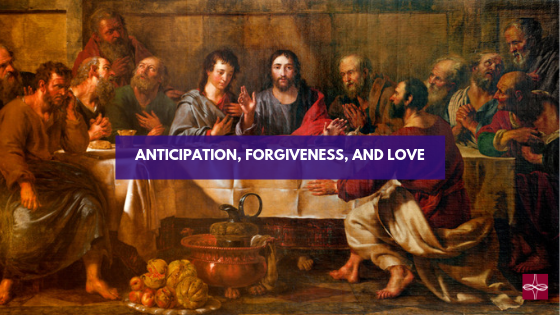



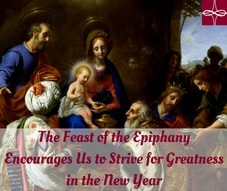

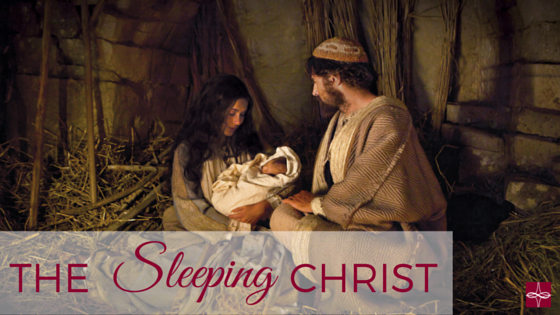

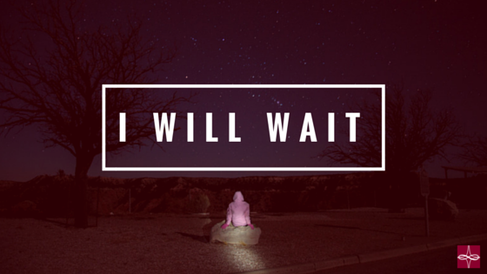

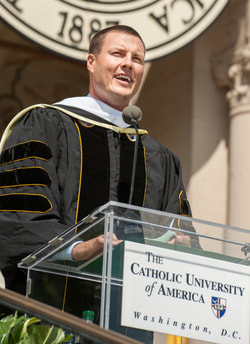

 RSS Feed
RSS Feed